One of the many reasons we love walking for exercise in midlife and menopause is because it is an easy, accessible way for most women to stay active and get outdoors. But what do you do when hot and humid, cold and rainy, or snowy and icy weather keeps you inside? Don’t use it as an excuse to skip your workout!
Keep Moving With An Indoor Walking Workout
Most days, you can make some adjustments, dress appropriately, and weather the storm or the heat. For the days when it’s unsafe or impractical to walk outside, turn to our three indoor workouts that will boost your mood, fight belly fat, give you more energy, and help ease those menopause symptoms. The change of pace will also challenge your body in new ways and add variety to your usual routine. Plus, consistency is the key to seeing results from your exercise efforts.
These three workouts can be done in the comfort of your home (or at the gym) no matter what the weather may be.
Workout 1: The 30-Minute Treadmill Trio
One of the great things about walking on a treadmill is that you’re in command. You control the climate. You can easily walk a precise distance and track your progress. You can add hills when you want them and get rid of them when you don’t. You can multitask while you walk, watching TV, talking on the phone, scrolling social media, or checking your email. Or you can get focused and crank out a heart-pumping, calorie-blasting walk like this one. Adding speed and incline intervals will rev up the fat-burning power of your walk.
Warm-up (easy to moderate intensity)
- 3 minutes: 2.5-3.0 mph, 1% incline
- 3 minutes: 2.8-3.3 mph, 1% incline
- 3 minutes: 3.0-3.5 mph, 1% incline
Part 1: Steady pace (moderate intensity)
- 3 minutes: 3.2-3.8 mph, 1% incline
Part 2: Speed intervals (moderate to hard intensity)
- 1-minute fast interval: 3.5-4.5 mph, 1% incline
- 1-minute recovery interval: 3.0-4.0 mph, 1% incline
- Repeat 2 more times
Part 3: Hill climb burst (moderate to very hard intensity)
- 30 seconds: 3.0-4.0 mph, 2% incline
- Repeat 8 more times, increasing the incline by 1% each time
- 60 seconds: 3.0-4.0 mph, 1% incline
- 30 seconds: as fast as you can go, 1% incline
Cool-down (moderate to easy intensity)
- 2 minutes: 3.0-3.5 mph, 1% incline
- 2 minutes: 2.8-3.3 mph, 1% incline
- 2 minutes: 2.5-3.0 mph, 1% incline
Workout 2: 15-minute High-Energy Indoor Workout
You don’t need any equipment or a lot of space to get an indoor, energy-boosting walk. Unlike walking outdoors, you can safely change the direction and ways your moving”going side-to-side and forward and backward and adding moves like kicks and knee lifts”to work more muscles, which prevents muscle imbalances and boosts your calorie burn. So, turn up your favorite tunes and get moving.
Warm-up
1 minute: march in place
Part 1: Fancy Footwork
- 20 steps marching in place
- 20 heel taps in front of you
- 20 front kicks
- 20 knee lifts
- 20 steps marching in place
30 seconds: walk on your heels with your toes off the floor
30 seconds: walk on your toes with your heels off the floor
Repeat Part 1 one more time
Part 2: Fast Feet
- 20 basic marches in place
- 20 fast marches in place
- Repeat 3 more times
- 20 basic marches in place
1 minute: speed walk around your house, exploring as many rooms as possible
Repeat Part 2 one more time
Part 3: Multi-direction Moves
- 20 side-to-side steps
- 10 rock steps on left foot (step right foot in front of you and then behind you, so you’re rocking on your left foot; each front and back step counts as 1)
- 20 side-to-side steps
- 10 rock steps on right foot (step left foot in front of you and then behind you, so you’re rocking on your right foot; each front and back step counts as 1)
1 minute: climb stairs (no stairs? Step up and down on a single step, exercise step bench, or sturdy low bench, or speed walk around your house again)
Repeat Part 3 one more time
Cool-down
1 minute: march in place
Workout 3: Add 5 Moves for Total-Body Toning
Add these moves to either the 30-minute Treadmill Trio or 15-minute High Energy Indoor Workout. You can turn either of those previous walking workouts into a total body, toning workout by adding our strength moves for walkers. These multi-muscle exercises will build strength to protect your joints, preserve muscle to keep you active, and improve your balance.
Here’s how to do it: After each part of the workouts above, including the warm-ups and cool-downs, do one of the moves in our strength moves for walkers video, completing 10 to 12 reps of each.
For example:
- After you warm up, do 10 to 12 Squats with Heel Lifts before moving onto Part 1 of that workout.
- After you finish Part 1, do Pushups with Side Planks.
- Continue interspersing the moves into the workout you’re doing until you do the last exercise following the cool-down.
- After your workout, finish with a relaxing stretching session to ease tired muscles and improve your flexibility so you’ll be ready to go next time.
Want to get more from your walks? Join the Get Moving Walking Program for Women to receive two 30-day walking programs designed by women for women, support from certified fitness instructors and Gennev menopause specialists, as well as special offers and incentives.
Always check with your physician before beginning any new exercise program.
As I look back on 2019, it was an amazing year for women in the second half of life.
Everywhere we turned, we saw women owning their lives. From celebrities to politicians; career-focused women to those who have mastered their family needs, we witnessed women taking charge. We also heard from women who were suffering from changes in their health, and from others making huge strides in their well-being.
This article is dedicated to you. As a community, you grew thirty-percent: 85% of you are from the U.S. and 15% of you are from countries around the world.
You showed us that you’re hungry for information, so we recapped the Top 10 articles most read by this community to bring 2019 to a close.
As the team and I curated this special edition, we were struck by the diversity of what women in midlife must deal with. It’s not just menopause. It’s also aging parents, kids, careers, discerning fact from fiction, feeling appreciated in life and finding gratitude and contentment.
We hope you enjoy “ even share “ this recap of 2019. Here’s to an incredible year for women’s health. The best is yet to come!
Happy New Year!

Jill Angelo,
Co-Founder and CEO, Gennev
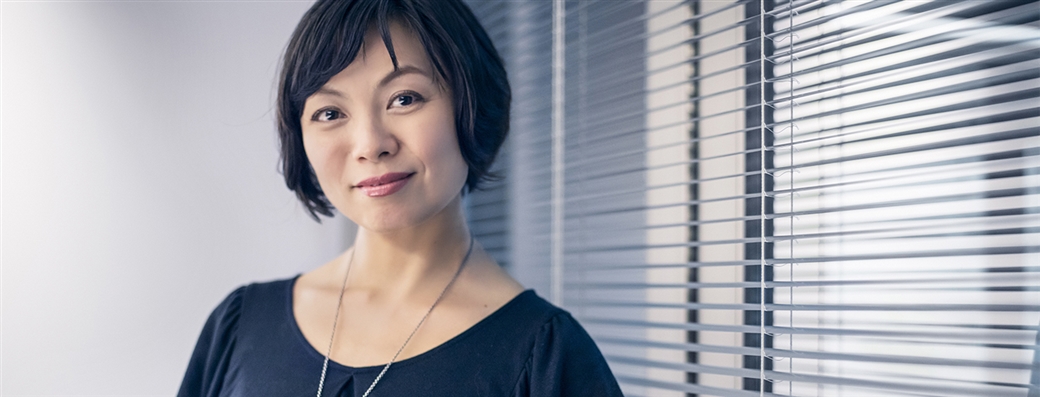
Compounded bioidentical hormones
Looking for a more “natural” solution for menopause symptoms, many women are choose bioidentical hormone replacement therapy. But what is BHRT? Is it safer than HRT? Get the facts on hormones, compounding, hormone “matching,” and how to be your own best advocate when it comes to your care. Read the full article.

Is this normal?
It’s the question we at Gennev hear most often: I’m experiencing X as is this normal? Chances are, yes. Yes, it is. And we’re so glad you asked. We believe the more women (and others) know about the changes of menopause, the safer we’ll all be. So keep asking, and we’ll keep helping you find answers. Read more on what’s “normal” in perimenopause.

Benefit from a gratitude practice
Gratitude is good for you. It may be hard to come by when you’re waking up and changing PJs for the third time in one night, but gratitude is actually a powerful healer. Find things to be grateful for, and you may find you have more than you imagined. Learn more about the benefits of gratitude.
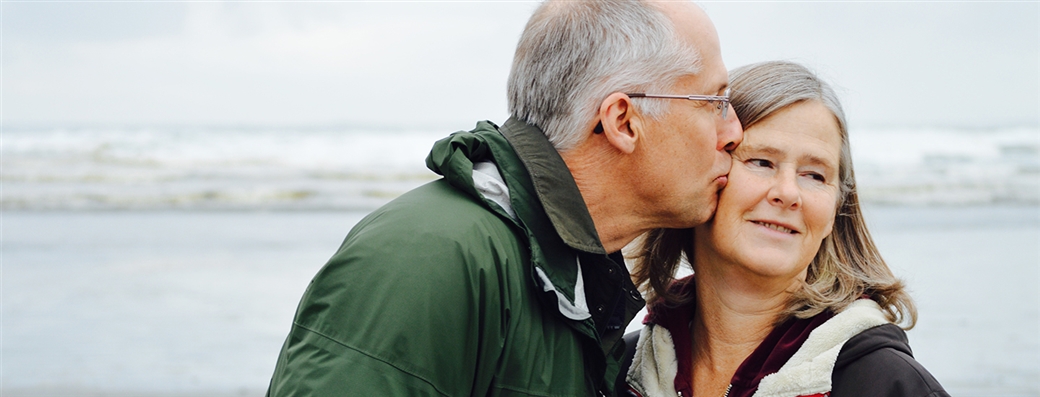
Helping caregivers take care of themselves
The “average” caregiver is a 49-year-old woman “ likely also in the throes of the menopause transition. If you’re caring for an elderly parent, ailing partner, young children, etc., you’re at more risk of injury and depression. Find out how to care for you while you’re caring for everyone else.
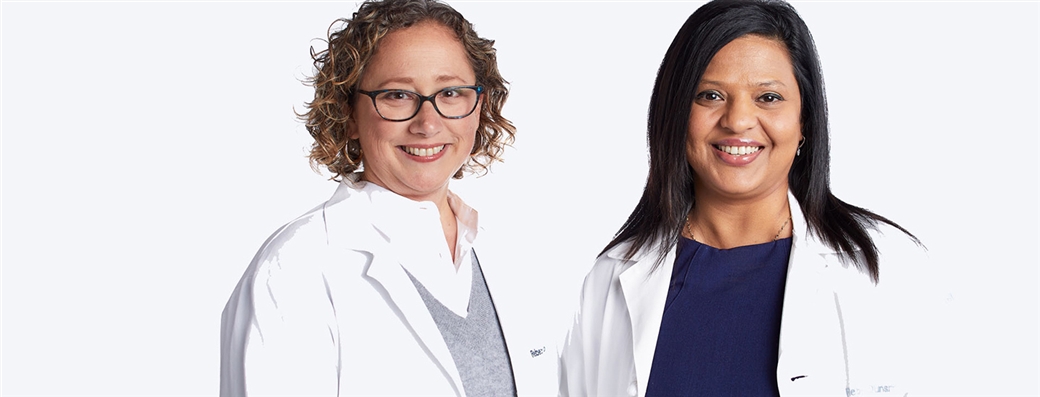
Internet hygiene in menopause
This term, coined by OB/GYN Dr. Jen Gunter, is about how to parse through all the health “information” you find on the Internet. Our own Chief Medical Officer, Dr. Rebecca Dunsmoor-Su, provides some wisdom around vetting online sources to keep yourself safe and informed.

The right way to get calcium in menopause
Remember when “getting calcium” just meant drinking a glass of milk? As we age, our nutrient needs change, and calcium is a biggie. Be sure you know the best ways and times to get your calcium to maximize its benefits to your body.
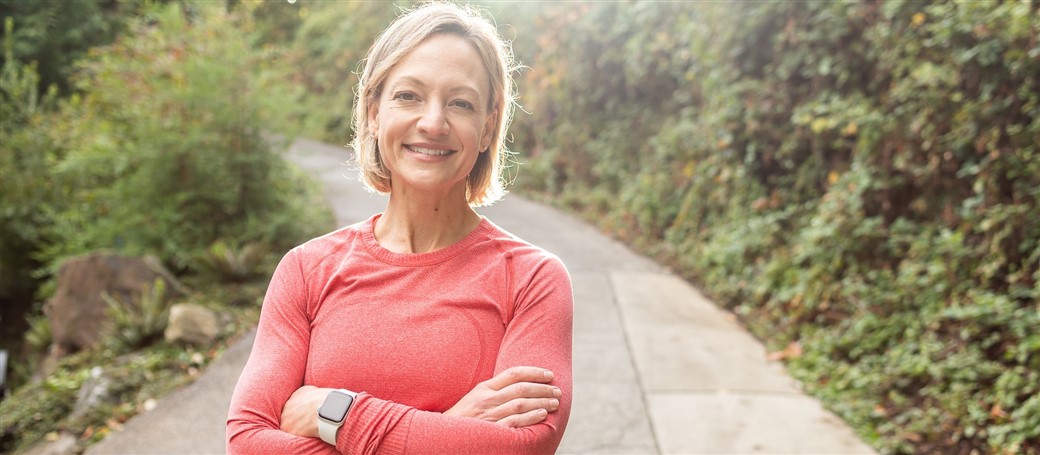
I think I had my first hot flash
Gennev CEO Jill Angelo talks about having her first hot flash, and how modern women and companies like Gennev are changing the definition of “menopause as the beginning of the end” to better reflect the truth: that it’s the start of a second chapter that can be just as rewarding as the first.

Healing from a hysterectomy
About a third of American women will have a hysterectomy by age 60. Because it’s so common, and because it’s serious surgery, our Docs of Physical Therapy took us through ways women can prepare for it, recover from it, and move forward in a healthful way. Read more about how to heal from a hysterectomy.

Practicing safe supplements
You suspect you probably need to take a supplement or two to meet all your nutrient needs. You head for the grocery store vitamin aisle and immediately want to give up. There are just too many choices and not enough information. Until now! Practice safe supplementing.

Flash Count Diary podcast with Darcey Steinke
Writer Darcey Steinke had a hot flash and started identifying with whales “ in a good way. Certain whales experience menopause because their experience and wisdom is more important to their communities than their ability to have babies. Sound familiar? Listen to this fun podcast with a gifted writer on the transformative experience menopause can and should be.
What articles did you get the most from this year? Did you share any articles with friends? If so, which ones? We’d love to know, so please share your thoughts with us on the Gennev community forums!
More and more, experts are recommending a diet heavy in healthy, plant-based foods (vegetables, greens, fruits, nuts, grains, and legumes) and light on animal products (meat, eggs, cheese, milk, and other dairy products) and processed foods to improve health in midlife and beyond.
Every body is different, but there are a few reasons to consider eating more plants and less meat:
- Alzheimer’s disease: Dr. Lisa Mosconi on our advisory board recommends a plant-based diet as a way to reduce your risk of Alzheimer’s disease.
- Heart disease: cholesterol is a risk factor for cardiovascular disease and is only found in animal products like meat, cheese, eggs, and yogurt. Beans, grains, fruits, vegetables, and other plant-based foods are cholesterol-free. Doctors recommend no more than 300 mg of cholesterol per day for people without risk factors for heart disease and 200 mg for at-risk people; a single egg has 212 mg.
- Breast cancer: grilled, barbecued, and smoked meats may increase your risk of breast and other cancers because of carcinogenic compounds created by burning muscle protein and animal fat.
- Obesity: a plant-based diet can help you lose the weight you gain in midlife. This can be really helpful if you’re concerned about dangerous adipose belly fat.
- Gut health: fiber becomes more and more important as you age, and plant-based diets are full of fiber.
- Longevity: cultures and communities that follow a plant-based lifestyle tend to live longer than others.
Whether your goal is to go fully vegan (consuming no animal products at all, including meat, eggs, and dairy), vegetarian, follow a Mediterranean diet, eat fewer animal products in general, or go meatless once a week (#MeatlessMonday), any new dietary change requires at least a little effort and commitment.
Here are a few tips for making plant-based modifications stick.
Please note: while we do recommend products and books, none of this content is sponsored. These are resources we’ve found helpful and think may help you. Talk to your doctor (or one of our menopause practitioners) before making any dietary changes.
1. Remember: veggies are part of any healthy diet
Many people approach vegetarianism with the idea that you will be eating more produce (and hence, more kitchen prep time) than you did before, but they forget that fruits and vegetables should be a part of any healthy diet: 50% of your plate should be leafy greens and veggies.
If you think about it this way, you’re really just swapping out the protein. That’s not so hard, is it?
2. But don’t just eat vegetables
Plant-based doesn’t mean only eating fruits and vegetables; you still need protein (see below for more info on this), healthy fats, and carbs. You’ll become fatigued and hungry quickly if you remove animal products and don’t replace them with their nutritional equivalent: not a recipe for long-term success!
3. “Vegan” does not always mean “healthy”
Vegan donuts, cookies, cakes, ice cream, pizza, and burgers may not have cholesterol but are highly processed treats to be eaten in moderation.
Still, a good vegan cupcake can be life-changing: plant-based eating doesn’t have to mean deprivation!
4. Educate yourself on nutrition
A healthy plant-based diet will give you almost all of the nutrients you need. The one exception is vitamin B-12, which is mainly found in animal products like meat, eggs, and dairy. When you’re limiting your consumption of animal products, consider shopping for a good quality supplement or research and eat some vitamin-fortified foods.
“Wait,” you may ask, “I’m not going to get everything I need from the food I eat?” You may be surprised that many of your favorite nutritional powerhouses, like milk and bread, are actually fortified with minerals like iron or vitamins.
Educate yourself a bit on nutrition and, again, talk to your doctor before making any dietary changes.
5. “Where do you get your protein?”
You may have been told your whole life that you need meat to get enough protein, but a healthy plant-based diet provides more than an adequate supply.
Beans and other legumes, grains, nuts and seeds, tofu, and even many vegetables are excellent sources of plant-based protein.
You’ve probably heard that to get a complete plant-based protein, you need to eat beans or tofu with rice or some other grain. While most plant-based protein sources are missing one or more of the nine amino acids that form a complete protein, your liver stores amino acids for later use, so as long as you’re getting everything you need in a 24-hour period, you don’t need to be militant about pairing complementary amino acids.
6. Say yes to soy in midlife
Soy sometimes gets a bad rap, but experts at Harvard University say that soy has either a beneficial or neutral effect in the body, especially as estrogen levels decline.
The phytoestrogens in soy called isoflavones can mimic the protective effects of estrogen in the body, potentially helping with hot flashes, type 2 diabetes, depression, bone loss, cardiovascular disease, breast cancer, and dementia.
As with many nutrients, phytoestrogens are best when consumed through the diet; the American Cancer Society recommends against soy supplements.
A note on tofu: Plain, raw tofu can be unappealing, but so is unseasoned chicken. It’s all about the flavor and texture: play around with marinades, sauces, and preparation methods, like pressing, frying, and grilling it.
7. Branch out and try new dishes at your favorite restaurants
Chinese, Ethiopian, Indian, and Thai are just a few of the global cuisines with a focus on vegetables and are easily made without meat. Keep in mind that many Indian dishes are often cooked with clarified butter (ghee) and Thai curries generally have fish sauce, but most restaurants will be more than happy to work with your needs.
8. Dine at a few vegan restaurants
Who does plant-based food better than plant-based chefs? Vegan restaurants are popping up all over the country, and not just in big West Coast cities: Omaha, Nebraska is home to one of the top-rated vegan restaurants in the U.S.
A quick search on Google or HappyCow can help you find options in your area.
9. Cook like the pros
Try one of these cookbooks:
- How to Cook Everything Vegetarian by Mark Bittman: if you want to really learn how to cook or just how to make beans, roast vegetables, or even make your own pasta, reach for this tome.
- The Moosewood Cookbook by Mollie Katzen: a classic vegetarian cookbook for 45 years.
- Veganomicon by Isa Chandra Moskowitz and Terry Hope Romero: an all-around solid vegan cookbook.
- The Homemade Vegan Pantry by Miyoko Schionner: plant-based cheese, butter, and other pantry staples can be expensive, but making your own can be both easy and delicious.
- Vegan Soul Kitchen by Bryant Terry: low-fat soul food to show you that plant-based isn’t deprivation.
- Vegan For Her: The Woman’s Guide to Being Healthy and Fit on a Plant-Based Diet by Ginny Messina and JL Fields: written by a registered dietitian and a midlife vegan coach, this book includes recipes and advice tailored towards women.
- Fresh from the Vegan Slow-Cooker by Robin Robertson: explore the slow cooking world. Many of the recipes in this book are gluten-free, soy-free, or low in fat.
Your local library will have these or other options for you to explore with no financial commitment. And, of course, you can always search for recipes online for whatever you’re craving.
If you don’t even know where to start, a plant-based meal service (like Purple Carrot), online or offline cooking classes (like Rouxbe), or YouTube videos can give you the confidence you need.
10. Many of your favorite dishes are already plant-based (or close to it)
You don’t need to venture too far out of your comfort zone! Think about all the things you eat that are naturally plant-based or could easily be modified: hearty green salads, fruit salad, spaghetti and marinara sauce, vegetable or lentil soup, curries, falafel, burritos, banana bread, and even a good ol’ PB&J.
When you’re on the run, Burger King and White Castle offer the Impossible burger, and Chipotle and Taco Bell have many great options for vegetarians and vegans. Bonus: if you hold the meat in your Chipotle burrito, guac is free. #score
11. Keep it simple
Any transition is stressful enough, so stick with cooking easy meals: stir-fried veggies and tofu, smoothies, bean-based chili, pasta, tacos, kebabs with tofu and veggies, soups, and steel-cut oatmeal are approachable weekday options.
If you still don’t know where to start, fill your plate with salad and veggies.
12. Recreate your favorite dishes
Craving lasagna? Scalloped potatoes? With a few substitutions, almost anything you already love to cook can be made plant-based: mashed banana or egg replacer fill in for eggs in baked goods, tofu or a store-bought substitute like Beyond Meat can stand up against meat in many dishes, and a non-dairy milk like soy, almond, or oat subs for cow’s milk.
Look for a recipe online if you can’t convert one from a favorite cookbook.
13. Take it at your own pace
Some people change their diet cold turkey and never look back, while others prefer to gradually make the switch.
Some people find that swapping out a beef patty for an Impossible burger is something they can stick to right away, while others prefer to start with whole foods that don’t imitate the meat or dairy they crave.
Over time, you’ll find it to be easier and easier to manage.
14. Plant-based diets have a reputation for being expensive, but they don’t have to be
Veggie meat and non-dairy options are better than they have ever been. There’s more variety, better quality, and you don’t even have to go to the “granola” grocery store to find them.
Still, processed foods are expensive and not always healthy. Save money by buying nuts, dry beans, and other staples in bulk and sticking to whole foods.
And what’s cheaper than rice and beans? If this sounds punitive, you just haven’t had good rice and beans.
15. You may need to swap more than just the food
You and your partner used to love date night at the local steakhouse, but your only plant-based option there now is a sad garden salad.
If date night is really just about the meat, you’re out of luck (in many ways), but happy couples really just want to spend time together.
Switch it up! Swap a food-date for an activity- or adventure-date. Explore new restaurants, go for a hike, play pool at the local dive, or find other ways the two of you can share a special connection.
16. Don’t restrict yourself
If you want to eat something that’s not plant-based, eat it. If date night needs steak, eat steak. If your mother will be upset if you don’t eat her famous lasagna “ and you want her famous lasagna “ then eat lasagna.
Restricting yourself too much will make you resentful. If you’re doing this for your health, you have the motivation to keep it up; a few missteps won’t hurt and could even improve your long-term approach.
17. One bad plant-based meal or product doesn’t mean that all plant-based food is bad
If you go to a bad burger joint, you don’t think that all burgers are bad. You just had a bad meal.
The same goes for plant-based dining and products. You may need to try different foods or, say, different brands of vegan cheese until you find what you like.
18. Your family doesn’t need to be on board (though it helps!)
If you’re the cook in the family, you know that it’s already hard enough to feed a picky teenager or spouse without adding another complication.
If you’re tempted to cook separate meals for yourself, opt instead for a la carte: serve meat, cheese, or dressing on the side with pasta or salad or put together a taco, burrito, or baked potato bar so that everyone can add what they want.
19. Find community
Everything is easier with a support network. You are going to have questions, question your commitment, and maybe even encounter a few other issues. If you don’t know anyone else who is trying to cut down on meat, eggs, and dairy, search for online communities on Facebook, Meet-up, or YouTube. And definitely join our Community too.
20. Remember why you’re doing this
You’re changing your diet so that you can see all the places you want to see in retirement. You’re doing it to take up that hobby you’re always wanted to try. You’re doing it to keep up with your grandchildren. You’re doing it to feel better and live longer. Remember this when the going gets tough. Feeling better and living better is worth it.
Are you ready to adopt and activate any of these tips toward eating a more plant-based diet? Share your favorites, and your progress in our Community. We’d love to cheer you on, too!
Her older sisters told her that her symptoms were just part of perimenopause.
But she knew her excessive nighttime sweating, severe fatigue, and especially her unexplained weight loss were signs of something more serious. She felt these were not just warning signs of menopause. She persisted and eventually received a diagnosis: a rare form of cancer.
After several rounds of chemo and a stem cell transplant, she’s back to thriving”because she knew her body and her symptoms.
Midlife can be as confusing and full of changes as adolescence. Your body is going to do things that don’t feel normal to you but are a natural part of perimenopause and menopause.
Unless they aren’t.
Chances are, what you’re experiencing is due to hormonal changes in perimenopause/menopause or to aging. But you know your body best, and if something feels more urgent, don’t hesitate to take it to a qualified medical professional. Pay attention to what and how you’re feeling; you may want to take extra precautions with some menopause symptoms if you have a personal or family history of certain conditions or symptoms that come with other discomforts.
If you are experiencing unbearable symptoms, a Gennev board-certified OB/GYN can give you a trusted opinion, determine if medication is right for you, and they can provide prescription support. Book an appointment with a doctor here.
Talk to your doctor if you notice any of these red flag warning signs for menopause
- Fractures before menopause. If you’ve broken a few bones, or even just one, after age 50 and before menopause, you’re at greater risk for osteoporotic fractures after menopause, even after all other reasons for osteoporotic fractures (like maternal fracture history, bone mineral density, diet, and drug use) are ruled out. Talk to your doctor about preventative measures.
- Post-menopausal bleeding or discharge. Irregular, inconsistent bleeding or unusual or foul-smelling discharge should raise a red flag for people with uteruses at any point in their lives, but any bleeding or discharge after your periods stop in menopause is a major red flag; it could be a sign of uterine cancer. Your doctor may order some testing for you, including an ultrasound and biopsy.
- Weight gain, brain fog, fatigue, temperature regulation, and irregular periods if you have an autoimmune disease or family history of thyroid problems. Many of the symptoms of hypothyroidism can mimic the symptoms of perimenopause. The most common cause of hypothyroidism is Hashimoto’s disease, an autoimmune disorder that attacks the thyroid, which is why people with Type 1 diabetes or celiac disease especially should rule out Hashimoto’s. And, of course, if hypothyroidism runs in your family, you might want to talk to your doctor.
- You’ve had a major depressive episode prior to perimenopause. Fluctuating estrogen is enough to make anyone in menopause moody. But if you’ve had a major depressive episode in the past, you are 59% more likely to have another as you enter perimenopause. And if you haven’t, but are experiencing fatigue, headache, and a sense of prevailing sadness now that you’re in midlife, you may be depressed and not even realize it. Mental illness is no joke; talk to your doctor about your options before your mental health takes a downturn. There’s no shame in it, and no shame in seeking help.
- Excessive sweating. Hot flashes are a normal part of menopause, but excessive sweating, especially nighttime sweating, can be a sign of something more serious, along the lines of heart attack or lymphoma. If you’re soaking through the bed sheets every night, especially if you also have unexpected and unintended weight loss, and/or a lump in your armpit, neck, or groin, talk to your doctor.
- Incontinence. 30-40% of women experience midlife incontinence, but feeling pressure on your bladder or sudden urges to urinate when you haven’t had them before could be a sign of ovarian cancer. Ovarian cancer in its early stages has few to no symptoms, and in the later stages can easily be mistaken for menopause symptoms. If you have just incontinence, chances are you’re experiencing the normal issue that comes with estrogen withdrawal. However, if you’re also experiencing bloating, quickly feeling full when eating, unintended weight loss, pelvic pain, changes in elimination (like constipation), and incontinence, make an appointment with your doctor.
- Cognitive challenges that go beyond brain fog. Menopause and brain fog is a normal combination or symptom. Mood fluctuations are a normal part of menopause. It’s not uncommon to forget where you put your keys every now and again or have a word right on the tip of your tongue. However, if you have trouble maintaining a conversation, regularly forget the month, year, or where you are, or can’t remember how to pay the bills, or if your friends and family begin to notice changes in your personality, see a doctor. It could be a sign of something more serious such as early-onset Alzheimer’s or dementia.
- Headaches. If you’re someone who regularly suffers from headaches, the good news is that the prevalence of headaches tends to decrease in your 40s. The bad news is that headaches after menopause could be a sign of something more serious. If you didn’t have headaches before menopause or your headache is accompanied by fevers, chills, muscle aches, nausea, or weight loss, gets progressively worse, or hurts more when you stand up, call your doctor. But don’t let this stress you out: migraines and tension headaches are still the most common form of headache in midlife and beyond.
- Back pain. Pain is never a good thing, though we often see back pain as a normal part of getting older. Sitting too much, poor posture during exercise, and even your mattress can all contribute to spinal aches. But when the pain is localized or acute, you might want to get it checked out, especially if you have osteoporosis or a family history of cancer. If your pain gets worse at night, while you lie in bed, or when you take a deep breath, or occurs without activity, talk to your doctor”especially if you have a cough, unexplained weight loss, fatigue, or begin to cough up blood. 25% of lung cancer patients report mid to upper back pain before being diagnosed. Lower back pain, when combined with constipation, bloating, pelvic pain, loss of appetite or urinary issues, can be a warning sign of ovarian cancer. Best to talk to your doctor and get yourself checked out.
- Your doctor dismisses your concerns. If you can’t have an open conversation with your OB/GYN about your menopause symptoms or feel like he or she dismisses your concerns, find a new doctor. Seriously. Here’s more on what to look for when selecting an OB/GYN in menopause.
Know what’s normal and what isn’t.
Read up on what to expect in perimenopause and menopause.
And always trust your gut. Talk to your doctor or one of ours if you have any concerns about your health, your body, and your journey through menopause.
What do you give a woman who has every menopause symptom? (or so it seems, anyway)
You give her sweet relief.
If you’re dealing with all the other gifts like hot flashes, anxiety, insomnia during menopause, we have a list for you. Stick it under a loved one’s nose as a not-too-subtle hint or buy “em for yourself because you deserve it.*
Self-care for menopause
Teadora
We have two recommendations this year from one of our favorite self-care brands. This is a company that will raise your holiday spirits: woman-led, environmentally aware, super-healthy products that really work.
Wild Acai Canna Cream with CBD: Whether it’s the acai berries or the CBD, we don’t know and we don’t care. It’s totally refreshing and soothing. And it’s CBD, not THC, so it’s legal in all 50 states and non-hallucinogenic.
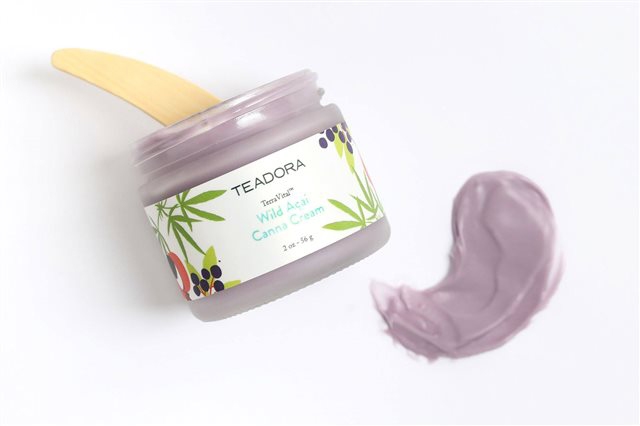
Wild Superfood Miracle Shampoo: If your hair is particularly frizzy and temperamental now, this shampoo will tame and calm it. Just a little goes a long way, and it’s gentle enough for daily use.
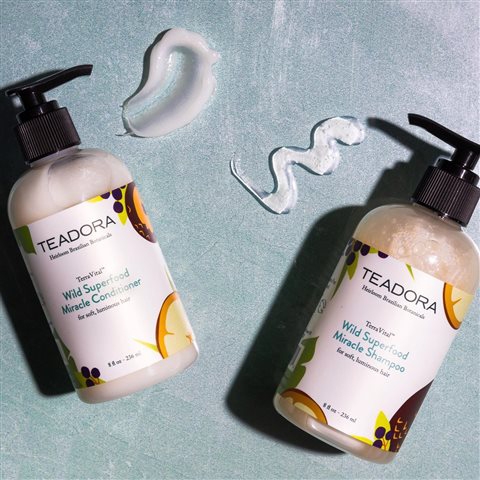
Gennev founder, CEO, and current Night Sweats Champion Jill Angelo always runs hot (and not just when she’s running). She wears the Birkenstock Arizona sandal pretty much all the time at home. They keep her feet cool and help her be all-over comfortable.
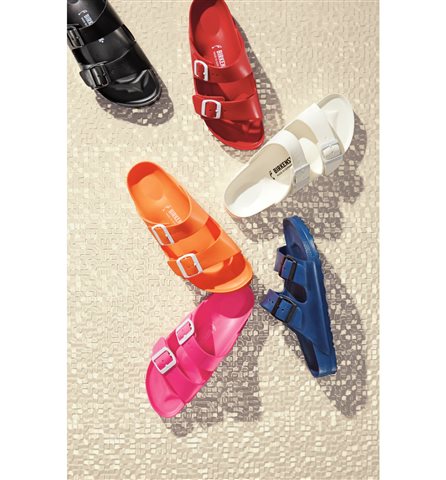
Exercise is the gift that keeps on giving in menopause: it helps with bone health, retaining muscle, managing weight, and protecting your brain, heart, and emotions. But let’s face it, as the days get shorter, darker, and colder, getting out for a run or to the gym is tough. We love the Excy for exactly all those reasons “ you get a full-body workout in the comfort of your own home.
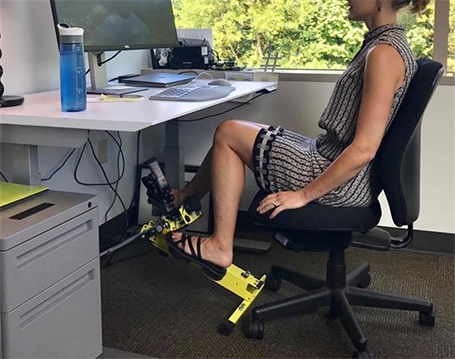
Menopause symptom relief gifts
Gennev
We are the source for menopause relief, and two of our favorites are Gennev Magnesium Glycinate for sleep and joint pain (and many women report anxiety relief), and our new Black Cohosh for help with hot flashes and night sweats.
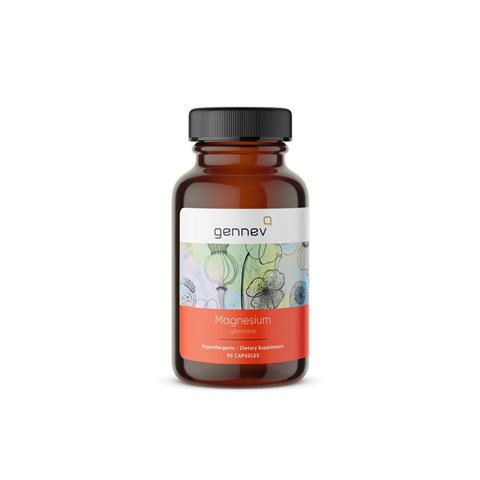
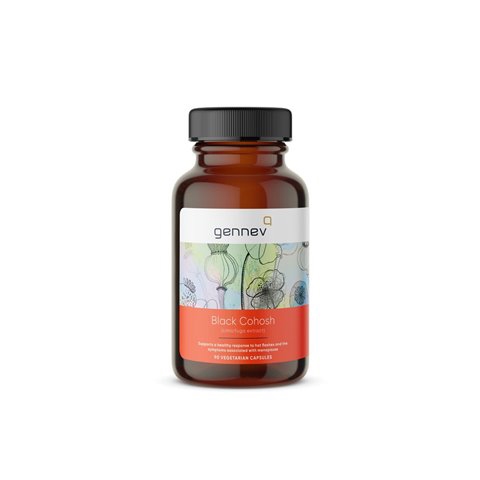
Hush
We love the Iced Hush weighted blanket. Weighted blankets are great for easing the insomnia and anxiety that can plague women in midlife, but who wants more blankets when they’re having hot flashes? Hush has one designed to keep you cool, despite the extra weight.

Embr
The Embr Wave is the cutting edge of “FemTech” as a very attractive bracelet that will help you regulate body temperature. Too cool? Hit the button from a warm-up. Feeling a hot flash starting? Nip it in the bud.

Great reads for women in menopause
Darcy Steinke’s Flash Count Diary is a fantastic read about one woman’s journey into understanding menopause and her own identity in this second half of life. We dare you not to tear up in the whale section.
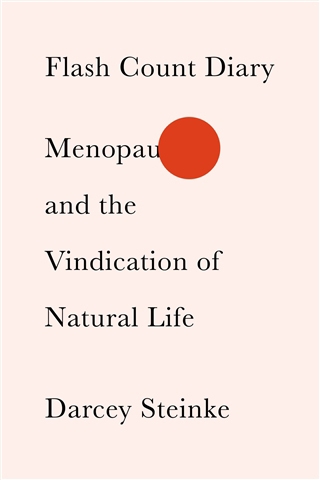
She may be a neuroscientist, but she’s also an amazing author. We recommended Dr. Lisa Mosconi’s book Brain Food last year; this year it’s The XX Brain: The Groundbreaking Science Empowering Women to Maximize Cognitive Health and Prevent Alzheimer’s Disease. She is making the claim that what we eat has huge effects on our brain health, and it’s an empowering, positive read.
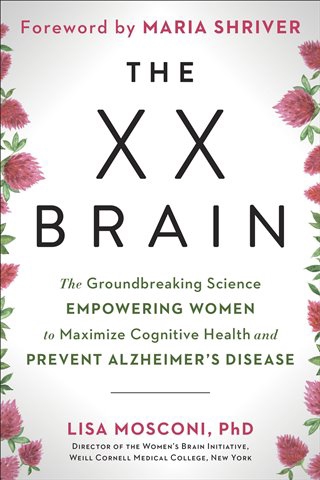
No, eating sugar won’t give you a yeast infection. Dr. Jen Gunter’s The Vagina Bible clears up so many misconceptions we have about our intimate bits and promotes a truly healthy approach towards women’s bodies and female sexual health.
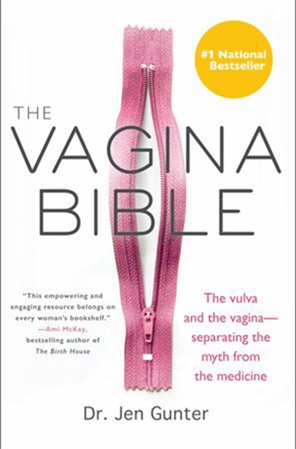
Pleasure
If you’re very close to a woman in midlife and menopause, Dr. Rebecca Dunsmoor-Su, Chief Medical Officer of Gennev, ob/gyn, and expert in women’s sexual health, recommends the Lelo SONA. This sonic clitoral massager may be, quite literally, just what the doctor ordered for a woman struggling with low libido and painful-sex issues. Great for solo play or with a partner, the SONA can help you find new ways of enjoying and expressing sexuality and pleasure.
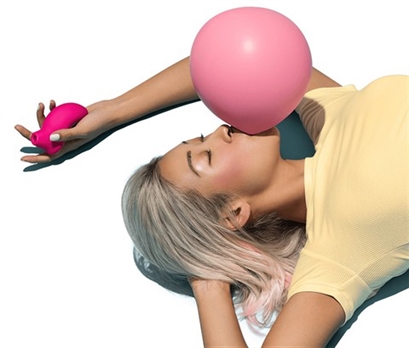
Nourishment
Food at its finest is a glorious balance of nutrition and pleasure. To help you get the most from your food, we turned to our Director of Health Coaching and Registered Dietitian, Lauren Leedy.
She suggests the Instant Pot pressure cooker for quick, easy weeknight meals or a subscription to a meal delivery service to take the guesswork out of meal planning and food prep.
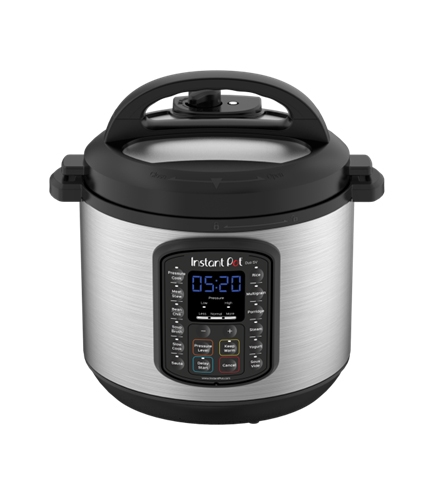
Says Lauren, “My top recommendation is Sun Basket for cooking kits and Thistle for fully prepared meals.”

What are you hoping to find under the tree this holiday season? Share your awesome gift ideas with the Gennev community in our forums!
*Note: Gennev has affiliate relationships with some of the retailers on this list and receives compensation at sale.
The experience of menopause differs from woman to woman, but in our conversations with women, one thing seems nearly universal: the more information a woman has, the more in-control she feels over her body and her transition.
Midlife Mojo with Dr. Anna Garrett
The problem? Because menopause is still so taboo, many women struggle to ask questions and get answers.
Dr. Anna Garrett has been a clinical pharmacist for over 20 years, working in a variety of practice settings. Happily for us, she discovered along the way that working with women in midlife is her true passion. Dr. Anna offers her clients a variety of services including hormone balancing, weight loss, and GeneSNP testing. Her health coaching is designed to help women in perimenopause and menopause escape from hormone hell and feel amazing in their bodies so they can rock their mojo through midlife and beyond.
Dr. Anna is a Doctor of Pharmacy and Board Certified Pharmacotherapy Specialist. She is also a Certified Intrinsic Coach , and has studied through the American Academy of Anti-Aging Medicine.
Clearly, Dr. Anna has answers on midlife and menopause. So we asked her some questions.
(We suggest listening to the whole thing, start to finish, then using the time stamps to go back and listen again to those parts that apply most to you.)
1:25
We asked Dr. Anna how she got started on the path of working with women in midlife and menopause. Dr. Anna shared with us how seeing women floundering and not living life to the fullest prompted her to go into practice helping women reclaim their bodies, lives, and selves.
3:40
What do we mean by “hormones,” “hormonal” and “hormone management”? These are kind of important terms to a woman in or approaching menopause, yet most of us are a little unclear on what they really mean. Dr. Anna educates us on hormones, their interactions, and the impacts when they’re out of balance.
6:05
We wanted to understand the difference between traditional HRT (hormone replacement therapy) and B-HRT (bioidentical HRT). So we asked. Dr. Anna tells us what they are, how they differ, when they’re called for, and the “laundry list” of lifestyle changes women should consider first before you go down the HRT road.
8:50
In this part, we asked Dr. Anna to take a little deeper dive into the differences between HRT and B-HRT. She gives us some great details on the risks and benefits and some of the factors to consider if a woman decides to pursue hormone replacement.
11:30
OTC progesterone is available and does have some benefits, but Dr. Anna schools us on the risks of self-medicating without the oversight of a health care professional.
13:12
How do you know if seeing a professional coach/consultant like Dr. Anna could help you? She explains the profile of an “ideal client” as eg someone who is dealing with hormone challenges and is ready to “do the work” necessary to feel better.
14:55
You’re ready to consult someone like Dr. Anna as how do you go about it? What’s that first appointment like, what expectations should you have? Dr. Anna has a range of possible paths to feeling better in your body, depending on where a woman is in her journey, what symptoms she’s experiencing, her financial circumstances and so on.
18:10
Women may not even know that they’re in perimenopause or menopause, and when symptoms are gradual, they may not even realize how poorly they’re feeling compared to how they could feel. Dr. Anna speaks to the issues women face in getting properly diagnosed and treated and offers suggestions how a woman can prepare in the years before midlife to be their own best advocate. Don’t have the joy sucked out of your life when what you’re experiencing can be solved, she advises. Oh, and don’t rely on your Facebook group for an accurate diagnosis and treatment plan.
21:48
Dr. Anna shares stories of women in menopause who got their midlife mojo back.” When hot flashes and body image issues threatened their quality of life, Dr. Anna helped them get balance and perspective back.
24:14
I’m sold, let’s work together as so what does that look like? Dr. Anna talks about why she thinks six months is the right amount of time to do the serious work of getting your body balance as and your mojo as back on track. And because hormone fluctuations know no borders, Dr. Anna talks a little bit about how and why she set up her business to be able to help women globally.
27:00
Dr. Anna takes on the issue of shame surrounding menopause and aging. “It’s not like anyone gets to opt out of this!” she says; don’t suffer needlessly, don’t be ashamed, enjoy the wisdom you’ve earned and celebrate this special time of life.
28:36
One piece of advice for listeners? Find someone to reach out to, Dr. Anna says. Your problems can be solved, so don’t suffer them needlessly.
To learn more about as and from! as Dr. Anna, check out her website at drannagarrett.com.
Egg freezing is still a relatively new fertility planning option for women and couples wanting to delay pregnancy for a few years.
We wanted to know more about this fascinating procedure that younger women are opting for to freeze their eggs, then have babies, safely, at a later date.
So we sat down with Dr. Lorna Marshall of Pacific NW Fertility. Dr. Marshall, practicing specialist in Reproductive Endocrinology & Infertility, co-founded the clinic back in 2005 and has been helping couples start or build their families ever since.
In the first part of our conversation with Dr. Marshall, we learned more about the science and history of in vitro fertilization (IVF), fertility medicine, and her own path to reproductive medicine. In part 2, we talked about the cultural changes that come with women and couples having more family planning power.
1:07 as vacation days, corner office, egg freezing: fertility planning as benefit
The number of women seeking family planning options has “shot up through the roof,” Dr. Marshall says, at least in part because some large companies are offering egg freezing as a benefit of employment. How has that changed the demographic of women who are coming in to ask about egg freezing?
2:08 as I’m 43, what do I do now?
Dr. Marshall tells us about the realities of egg freezing. Big one: ya gotta do it when you’re young.
3:29 as It only happens in the movies
Or to movie stars. Dr. Marshall says not to be confused by celebrities having babies in their late 40s or even early 50s; chances are they used donated eggs, not their own. It’s important to understand the realities of science and bodies, including their limitations.
4:05 as I’m here; what’s next?
When woman comes to the clinic, what happens? Dr. Marshall talks about testing, gives us the egg supply explanation, and details the options women have when the results are in.
7:19 as Answering patients’ questions about fertility planning
When it comes to fertility, it’s critical to manage expectations. Doctors may not be able to give a woman an answer to the question, “Will I be able to have a baby with my own eggs?” as there are often too many factors. Find out what impacts fertility and how docs work with women to best reach their goals.
9:19 as Have my eggs been frozen too long?
Because the science of vitrification of eggs is still so new, Dr. Marshall says, some things just aren’t known yet, like, do frozen eggs have as for want of a better term as an “implant by” date? What stresses the egg? How long are vitrified eggs viable, and does the faster-freeze process put eggs at risk?
11:14 as Egg storage: what does it look like, how does it work?
Big tanks hold racks and racks of eggs, sperm, and embryos at the Pacific NW Fertility clinic, Dr. Marshall says. Some fertility clinics don’t store on site, but Dr. Marshall’s clinic has chosen to.
12:25 as The nitty gritty: how much does it cost?
As you can imagine, egg freezing isn’t cheap. And many insurance companies won’t cover “elective” egg freezing. With egg retrieval and the medications it takes to do the process, women can expect to pay $14 as 15,000 for a single cycle. That’s not the cost of establishing a pregnancy, Dr. Marshall reminds us; just the process of freezing.
14:07 as Not a decision to be made lightly “¦
The best age for freezing eggs may be a woman’s 20s, which is not usually when women have the money to have their eggs frozen. The cost may be changing for cancer patients, at least, Dr. Marshall says, with some state legislatures working to require insurance companies cover fertility preservation. Will insurance ever cover truly elective fertility preservation?
17:08 as Making babies: what do you love most?
We wanted to know what made Dr. Marshall want to come back to work every day. Her biggest reason probably won’t surprise you, but, she tells us, the growth and changes in the field have also kept her engaged in her work. “I’m in the heart of society, doing this,” she says.
19:15 as Egg freezing is still in its (wait for it) infancy, so do your homework
Because this procedure is still so new, it’s important to work with a clinic that’s actually made some babies from frozen eggs, Dr. Marshall says. There are lots of clinics that simply haven’t gotten to the “thawing eggs and making babies” part yet. She lists some questions women should ask before choosing their clinic.
22:00 as By the numbers: your chances of making egg freezing work
Like much about a woman’s body, her chances of making a baby may be wildly different from another woman’s chances, even at the same age, says Dr. Marshall. She shares with us some estimates of the chances of success based on age of mom and number of eggs retrieved.
Would you consider freezing your eggs in order to delay pregnancy? Why or why not? We’d love to hear your thoughts; please share in the comments section, email us at info@gennev.com, or let us know on Gennev’s Facebook page or in Midlife & Menopause Solutions, Gennev’s closed Facebook group.
Be sure to stay tuned to Gennev.com for that conversation, or subscribe to Gennev on iTunes, Stitcher, or Google Play, so you never miss an episode.
Little ruins a run faster than some unexpected moisture. And we don’t mean rain.
As an almost-49-year-old wanting to qualify for the Boston Marathon this year, I’m looking at a whole lot of miles on my feet in 2017. So when this topic came up in a team Gennev brainstorming session, I jumped. Here’s why:
According to Runners’ World, as many as 40 percent of female runners likely suffer from leaking urine.
But I’m healthy! You cry. Why me??? (Believe me, I’m right there with you, gal.)
Running is a high-impact sport
Running is a great way to stay fit. It’s also a high-impact exercise: you hit the ground with a force equal to several times your body weight with each foot strike.
There’s been lots of research into how that pounding affects our knees and feet, but for women in particular, the impact has other, well, impacts. That’s a lot of pressure being exerted downwards on your pelvic floor—the network of muscles and ligaments that support your bowel, bladder, and uterus.
According to Physiotherapist Michelle Kenway, if those muscles aren’t fit and strong, running can stretch and weaken them further, and argh! The Dreaded Shpritz.
A weak pelvic floor can cause incontinence when running
Pelvic floor weakness is very common among women generally. Menopause, pregnancy and vaginal births, hysterectomy, obesity: all of these can cause the muscles to weaken and make it harder to control our bodies’ elimination of waste.
And when pelvic muscles lose strength, not only do you increase your chances of misting your shorts, you also lose some of the deep core strength that makes you a stronger, more injury-resistant runner.
A strong pelvic floor can make you a better runner
Happily, strengthening your pelvic floor brings some serious benefits. You can:
Improve your running. Your pelvic floor is at the deepest part of your core and helps stabilize your body in motion. A strong core helps you maintain proper form, which makes it easier for you to engage all the necessary muscles to propel you forward. Stronger, more efficient, less prone to hip, knee, and back injury—sounds good to me!
Prevent incontinence and prolapse. Along with urinary incontinence, someone with pelvic floor weakness can also suffer fecal incontinence (leaking stools), and pelvic organ prolapse. Prolapse is when a pelvic organ such as the bladder droops and even descends into the vaginal canal or anus. Strengthening pelvic muscles can prevent and may even reverse pelvic prolapse.
Enjoy better sex. According to Women’s Health magazine, strengthening vaginal muscles (which are part of the whole pelvic floor network) can increase pleasure and the possibility of reaching orgasm during intercourse. So, you know—bonus.
Exercises for a strong pelvic floor
Kegels are a common way to strengthen the pelvic floor by squeezing and relaxing the vaginal muscles. If you’ve ever had to interrupt your pee mid-stream, those are the muscles you’re targeting. Contract and hold ’em for a count of 5, then relax. Repeat. Try to get up to 10 sets, a few times a day.
You can also get some very cool smart devices for kegel exercises. These help you target the right muscles and work them correctly by providing feedback to your phone or tablet. Our CEO, Jill, uses the Elvie Kegel and has seen real progress with it. Or you may prefer a non-tech solution such as the Stone Exercise Egg or wearable Kegel balls. With any inserted device, you’ll want to use a non-silicone, water-based lubricant.
If pelvic floor problems persist, or if you experience pelvic pain, please, consult a medical professional.
The information on the Gennev site is never meant to replace the care of a qualified medical professional. Hormonal shifts throughout menopause can prompt a lot of changes in your body, and simply assuming something is “just menopause” can leave you vulnerable to other possible causes. Always consult with your physician or schedule an appointment with one of Gennev’s telemedicine doctors before beginning any new treatment or therapy.
In this conversation, Denise Pines and Gennev CEO Jill Angelo talk about the discrepancies in care and how many in the medical community are starting to recognize and close the gap.
There’s long been a gap in the quality of medical care men and women receive. Women’s bodies are less understood, their health issues less researched, their solutions have frequently been “treat women as small men,” their pain is poorly treated or ignored, and on and on and on.
That discrepancy in care is exponentially greater if the woman is Black or a woman of color; greater if she’s poor, greater if she’s a transgender woman; greater if she’s past reproductive age.
There are women, men, and organizations out there that feel like part of our family “ the family that’s working to improve health care for women. Denise Pines is one of that family.
Denise Pines is the co-visionary and head task master for Tea Botanics, a company that makes tea for hot flashes, among others. An award-winning marketer and serial entrepreneur, Denise has participated in 10 startups. She is founder of WisePause, a pro-aging health and education platform and FemAging 2020, a report that introduces a new industry sector, FemAging Tech.
Denise cofounded Women in the Room Productions who produced the award-winning film PUSHOUT: The Criminalization of Black Girls in School. Denise is the current President of the Medical Board of California.
We had the pleasure of recording a menopause goddess podcast with Lynette Sheppard, author of Becoming a Menopause Goddess and “scribe” and moderator of the website and blog by the same name. Lynette and her goddesses are tackling the lack of knowledge and awareness women have when approaching the “Big M.” Lynette spent more than 10 years as a Nurse-Manager and head of Intensive Care and Coronary Care units in Santa Rosa, California. She knows her way around healing and the human body and is a terrific translator of medical-speak.
We talked with her about where the Menopause Goddesses came from, what she’d learned over the years, and how the blog had changed as and continues to change as so many women’s lives for the better.
JILL: I’m here today with Lynette Sheppard, author of the book Becoming a Menopause Goddess, and moderator of the Menopause Goddess blog and website. She and her team of goddesses decided to take on the lack of knowledge and awareness women generally have when heading in to the big M. She’s a former nurse manager and was the head of Intensive Care and Coronary Care Units in Santa Rosa, CA for about 10 years before deciding to go out on her own as a speaker, author, and expert on all things healing and health.
The Menopause Goddess blog has been named a top menopause blog for the past five years by Health Line magazine, and so we’re extremely excited to have Lynette with us today.
LYNETTE: Absolutely my pleasure, I look forward to talking to your listeners and sharing what I’ve come to know over the past oh-so-many years of menopause.
Becoming a menopause goddess
JILL: How did you come to find this lack of awareness associated with menopause when you started out with Menopause Goddess?
LYNETTE: Honestly it happened because as a nurse I expected fully that menopause would be a simple, easy transition. Maybe I would be hot once in a while but no big deal, and how wonderful not to have to worry about if I could wear white pants or a white skirt anymore, but what happened was so many weird menopause symptoms and so much strangeness occurred that I began to look for information, and there wasn’t much. There was one site called powersurge.com and it was so confusing I couldn’t even figure out how to follow or get more information. It was very chatty and nice but it didn’t have anything for me. There were a couple of big books but they were written by doctors, and they were so hard to tackle, so full of anatomy and physiology, that even as a nurse I didn’t want to read it. What I wanted to know was, was what was happening to me normal? If it was, what could I do about it because my entire life was turned upside down.
JILL: Do you mind sharing how it turned your life upside down?
LYNETTE: Personally, first of all the hot flashes were so overwhelming, it was like heart palpitations, intense heat, and they would last for “¦ they weren’t flashes, they lasted for five, ten minutes, and they were hideous and literally interfered with daily living. They were dreadful. I thankfully did not have any of the emotional symptoms as I did not get depressed, I did get a little angry once in a while. Kind of like a cranky child, when you’re too hot, when you have the flu or something, you get irritable. And you know the other symptoms were just weird things like I got sick a lot, I had shingles for the first time, everything was catty-whampus and upside down and it made no sense at all. There was vaginal dryness, the libido just said goodbye”¦ so there were so many things that were so disconcerting.. oh, and my hair started falling out. That was horrifying and to have it all happen at once. I was like “either I have some terminal illness or this is menopause and if it this is menopause, why doesn’t everybody talk about this?” I talked to my own mother and she said, “Oh honey I didn’t really notice it.” Well, that generation unfortunately was given hormone pills before they actually would have felt a symptom, I believe, so there was no way she would have felt it. Anyway it was dramatic and it was interfering with my life terribly.
JILL: Was there a moment where you just said “I’m gonna take this on and start not only fact-finding for myself, but publishing”?
LYNETTE: Absolutely there was, my girl friend, my best friend Teresa started menopause around the same time as I did. I was talking with her on the phone one day and I asked her “Do you think this is normal? Do you think we’re normal?” “Do other women go through this?” And we decided to have what we called a “slumber party with a focus.” We were gonna invite some women to spend a weekend where we explored what was going on with us, we women of a certain age and affliction. We had all these icebreaking exercises and stuff which we obviously didn’t need because the minute the 15 women gathered the floodgates opened. Clearly we were all going through dramatic huge upheaval, and there was no place to vent that or to realize that we were not alone so that became the impetus. We began to meet every year, we met for 14 years once a year and kept in touch the rest of the time, just to find out we were not alone, that all of us had been sort of hit upside the head by menopause was a huge relief. And the second part was beginning to realize that it would not last forever, the worst of it was going to be temporary. But we shared what we called “kitchen table wisdom” with one another, the things that worked for us or didn’t. Each of us was different, each of us had different symptoms and each of us responded differently to different remedies, but coming together and being able to share that meant “OK we’re women, we’re tough, we can get through anything if we know what to expect.” But not knowing what to expect threw us over the cliff. We didn’t know what to do. We didn’t know what was wrong with us. If somebody had told us, “hey, it’s normal, and the worst of it will last a year or two” we would’ve said, “fine, good, we’re down with that.” I mean, women can have babies, we can do this! To not know was probably the worst thing possible for us, and basically started the impetus of our goddess group meetings.
“Just to find out that we were not alone, that all of us had been sort of
hit upside the head by menopause, was a huge relief.”
JILL: Lynette, I love the notion of the slumber party with a purpose. Women need women, and the notion that you all took this time and maintained it over the course of 14 years and now have pulled it into something like the blog and your own writings is really remarkable. What are some of the unique remedies or a remedy you’d care to share?
LYNETTE: If I were to give one remedy and absolutely one, it would be to create your own goddess group and call it whatever you want. Sometimes when you’re in the throes of menopause it’s like, “Oh I can’t possibly do that, it’s too much work,” but we’ve already done the work for everybody. If someone went to our menopause goddess blog and wrote in “creating your own goddess group” in the search box it would come up with all the ways of how to do that and how easy it is. So no reinventing the wheel, all you’d have to do is invite people and it would be simple. But if there’s one remedy we would say, all of us, got us through, instead of just surviving menopause we actually became able to thrive during the transition, it was each other; it was that group. Single most important, every woman said: the single most important remedy they had in their multiple remedies and things that they tried. That one saved their bacon.
JILL: Tell us a little bit about the blog then, how did that group in its very infancy shape the blog? What kind of resources and information do you make available?
The origins of the Menopause Goddess blog and book
LYNETTE: First of all, how it got started was my girlfriend Teresa said, “Not only will we start this group but we’ll write a book about it! There’s not any information out there.” I said “You write a book, I’ve written a book once, it was a lot of work and I said I’d never do it again.” But the things that were shared were so wonderful and so helpful that we couldn’t help but share it. I asked my book agent about starting a blog and she told me it was a good idea. But the blog took on a life of its own oddly enough, so not all the stuff in the book ever made it on the blog because so much information was coming in so fast and furious that I had more than enough stuff to put on the blog for years. Because it’s been around for 15 years, the kinds of information really are partly what women share with each other but also as a nurse I’m pretty well able to sift through the medical information, pull out, and put in plain language, what we really need to know.
I would say that in the last couple years the shift of the blog has been more to what do we do post-menopause to live a vibrant life. I would say to women going to the blog, every symptom, everything you want to know about has been written about at least once, probably five to ten times on the blog. That search box is amazing. Dealing with heavy bleeding? All those posts show up. You can find remedies, you can find information on the blog because it’s been around so long. We’ve gathered that information and that’s why the blog has shifted its focus now so the more recent entries are much more about living our second act. Of course if there’s a new product like yours, I’ll showcase that if it’s worthwhile, or books. I’ll also report on new research and new modalities. Otherwise it’s all there, for the asking and the taking.
How has being a menopause goddess changed you?
JILL: How has managing the blog changed the way you deal with your own life changes associated with menopause and this next chapter? Has the blog made you more conscientious? What would you attribute to the blog that’s changing the way you’re moving through this as a woman?
LYNETTE: I absolutely think the meetings and the blog have made me more open and conscientious, and probably ask ourselves questions we never would have asked ourselves. I think that was really important, knowing that every woman has a different menopause, and what worked for one woman may not work for another, or what worked for me today may not work tomorrow, which is startling but true. So you become much more fluid, open and receptive rather than trying to control everything, if that makes any sense.
JILL: What are some of the lifestyle changes that help with the transition into menopause and also into this second chapter of life?
LYNETTE: I think the lifestyle changes for the second chapter are pretty simple. There’s a nurse who’s also a hospital administrator I know and she summed it up pretty sweet and simple saying “Eat well, move, and love well and if you do that, you’re gonna do great.” And I really think that’s the prescription. That said, when you’re first going through menopause it’s rough, different foods, temperature, things like that can precipitate horrible hot flashes as women will find themselves trying anything. There is a lot of writing out there that says you shouldn’t have chocolate, alcohol, wine, all of those precipitate hot flashes. I basically wrote in the book that I would give up my health care practitioner before I would give up wine and chocolate and coffee. One of the doctors who proofread my book said “absolutely best part of the book.” What that really translates to is you have to be gentle with yourself. If/when you make changes, don’t change everything all at once, you’re already going through so much. If you’re having horrible hot flashes you might try cutting out caffeine or decreasing it, same thing with chocolate and wine, but if those are things that also make you feel happier, then I wouldn’t do it! When we started meeting the refrigerator for the weekend was stuffed with wine, chocolate, and we had coffee and we had a wonderful time. And now there may be one or two bottles and we don’t need to drink it. We don’t feel the need for so much chocolate (probably our serotonin levels are up again.) We all agree there’s only so much you can give up and so much you can do to yourself. And secondarily if you haven’t been super heavy duty in exercise I wouldn’t do 6 days of Pilates. Again, be gentle, be kind to yourself more than you’ve ever been because you really need it at this time of life. Don’t think you can fix it because it doesn’t get fixed. It’s something we have to go through but we can choose how we go through it. If you feel nourished by making lifestyle changes, I think that’s great. If you don’t, if you feel deprived, now is not the time to feel deprived.
Want some help with eating better? Check out these Three Reasons to Make Friends with Health Fats
JILL : In all of that have you come across any surprises along the way?
LYNETTE: Absolutely. The weirdest one was when a women wrote me on the blog saying she had “burning lip syndrome.” I had never heard about that, I swear, her doctors had said she needed to take heavy duty drugs, like anti-convulsants and had huge side effects to deal with that. It was so painful for her that it made it hard to eat. So I made it my personal mission to learn what I could about Burning Lip Syndrome and I found that weirdly enough there was a way to deal with it that was more natural that worked probably better than the big drugs. It was simply oil with cayenne pepper, controlling a burn with a burn. But it was an eye opener, I thought “Wow, there are symptoms that I never dreamed of that occur with menopause.” So that was shocking to me. It was surprising to me how many women, previously healthy, strong, active women, came down with some serious illness or illnesses during the menopause transitions. It’s not too surprising that your immune system might be affected, but I mean hideously affected. I got my first attack of shingles and when I went online it said I either had lymphoma or something is really wrong with you. But now enough of us, of the Baby Boomers, have had shingles that it says “You’ll probably get shingles for the first time when you’re menopausal because it’s caused by the chicken pox virus which continues to live in your system.” But you can imagine how terrified I was when I thought I had lymphoma.
JILL: That’s one thing you really don’t hear about menopause at all is around that notion of more serious illnesses outside of the traditional symptoms.
LYNETTE: Absolutely, I even wrote to the investigators at the Nurses’ Health Study which is the longest pro-active health study that’s ever been done, and I’m part of it. It started the year before I was in nursing school. They said it was interesting, they were studying rheumatoid arthritis as group and lupus as a group, but they hadn’t considered that this might be because there’s an immune system assault that happens with menopause. Now, have they done anything with it? Not that I know of, but I’m still hopeful that there will be research done. Even if research isn’t done, I would say if you’re coming up on perimenopausal age, now is the time to start boosting up your immune system as much as you can.
The five “forgotten” signs of menopause
JILL: You’ve listed some of the really odd things with menopause along with some of the more common things, but Lynette, what are the five forgotten symptoms of menopause?
LYNETTE: Well I just mentioned one of them which is the immune dysfunction which is just horrifying and horrible and fully half of our group had some huge health problem when they’d never had any health problems their whole life except for normal colds and flus. Each one had a different assault which I think is why it’s not noticed as much.
Secondly the hair loss is getting a little bit more play now, but most of us women define ourselves a little bit as feminine by our hair. If your hair is falling out in big clumps, it’s a real concern. I found this the most disconcerting symptom of all, actually. Thank god I had a lot of hair because I believe I lost fully a third of my hair volume. I was ready to research hats and wigs and then it stopped. If you go to your dermatologist or your hair dresser, you’ll be told it’s just hormonal. That really doesn’t help. It’s horrifying. I don’t think that one gets as much credence as it should, but that’s changing, thankfully.
Brain fog is another one, the fact that suddenly your brain doesn’t work at all. You can’t remember things, you can’t focus or concentrate. One woman wrote me and said, “Oh my god I’m studying for my master’s degree, I started to write my thesis, and menopause came on and I’m afraid I’ll never finish it. I just can’t seem to think.” So if you think about having the flu and your head’s all full and you can’t think and you’re out of it as it’s like that, only every day. It really feels like we’re losing our minds. So to tell someone, “No, you don’t have Alzheimer’s, no, you’re not going crazy, what’s happening is normal, it kinda sucks, but it does get better with time.” But it can be a horrifying symptom too. Most menopausal women laugh it off now but it is difficult to deal with.
Fatigue is almost never addressed I think and there can be almost a bone crushing fatigue that happens with menopause. Just because everything hormonally is in such flux, so you can feel like you have no energy whatsoever. So just the time when you think you oughta be exercising, you can barely drag yourself through the day. It’s exhausting. Certainly insomnia plays a part in that, but even if you’re sleeping well, and I did sleep well after a while, the fatigue would come out of nowhere as didn’t want to do anything, didn’t want to move. Again it was like having the flu all the time.
The fifth symptom I mention is anxiety. People who’ve never been anxious their whole lives suddenly have panic attacks as waking up in the middle of the night worried about everyday things, a constant barrage of worries, and it’s pretty debilitating also. There aren’t a lot of remedies you can use without pretty major side effects. Obviously, if it makes you feel like you can’t leave the house then it should probably be treated, but if you’re feeling just general feelings of worry and doom and gloom, that can be managed with, “This is normal, it’s gonna go away and get better, I’m gonna give myself a reality check. What is happening in this moment? The sky is not falling, nothing has happened, everything is OK in this moment.” To breathe into that sometimes can break the pattern of that. Just knowing it’s normal honestly is such a huge relief to women when they write me and say “I think I’m going out of my mind, I’m scared of everything, I’m nervous,” I write back “it’s totally normal” and they go, “Oh, my god, thank you. And this is not gonna last forever? Fabulous. I can deal.”
Get some herbal help for sleeplessness and anxiety from Jovanka Ciares
Celebrating the good things about menopause
JILL: Are there any uniquely good things that start to happen as we move into the menopause phase of life?
LYNETTE: Oh that’s a very good question, and yes there are. After the initial physical and sometimes emotional onslaught, you kind of come out the other side feeling like “OK, I’m different now. And if I’m different, how is that going to play out in my life?” Oddly enough we all decided that we cared less what people thought in the best possible way. We found menopausal women become extremely creative, the creative urge overwhelming, you can’t wait to create, whether it’s craft or dance or painting or writing or gardening, that creative urge is huge. It’s like we channel the fertility into another type of fertility. Also sort of a willingness to try anything, because we feel like we’ve been through the worst of it, so now it’s like a new life in a sense. So in that new life, you’re not afraid to try new things because the “Oh you didn’t do it good enough” police won’t come and get you. You can fail at something and laugh and then try something else, you can enjoy things more. There’s a settling into your body that happens. I think it’s like an awakening. Menopause is such a sharp transition, I feel sorry for men that they don’t get to go through it. That sharp change makes you question everything and you begin to go “Oh, I see what I want to do with life, I see how I want to live it, I see how I want to enjoy it and how full and rich it could be.” So actually menopause turns out to be a wonderful thing. I always say “menopause will set you free but it will really piss you off first.”
JILL: That’s fantastic, I love that. We typically don’t look at the positive. Often times we celebrate these other milestones in life as women, first period, first baby, but we don’t really celebrate menopause other than “I look forward to not having a period” but it’s such a small bit within the bigger new next chapter that you just talked through from a positivity perspective. What makes your blog so popular amongst your readers?
LYNETTE: I think it’s just the plain talk, and the fact I can sift through the medical information and make it plain and simple. But the straight talk from real women, not just me but all these women, we distilled the wisdom and put it out there. I think that’s what made it popular, trying to demystify things, make things simple and clean and pure and not be afraid to say certain things. Some bloggers are afraid of litigation, but we’re just women sharing wisdom. We’re not gonna hold back, we’re not gonna say we know, we’re just gonna share it. We are there as a broader community of women helping each other.
JILL: What kind of lasting advice would you give our listeners about how they can take control of this phase of their lives and ultimately feel as fabulous as they possibly can?
LYNETTE: Again, I can’t say how important it is to have a group of like-afflicted, like-minded women. That said, I think just being responsive to your body and to yourself. Again you’re gonna want to exercise and eat well but you also want to be gentle with yourself. I always think of menopause as puberty to the tenth power. When kids are going through puberty we give them lots of space, we understand their moods, we let them go into their room and be quiet and write poetry. Alas that’s not always what happens for a menopausal woman who has to work and take care of a family, and is feeling all those feelings only to the tenth power. I think making that space for yourself and being proactive, saying, “I need this, this is what I need to take care of myself.” And involving family and friends. I think a lot of men read the blog with their wives because if we have no idea what’s going on, it’s even worse for them. It’s like their partner has suddenly turned into someone they don’t know! For them to experience it and to be a help along the way is so healing for both partners. I think those are the kind of things. Be gentle with yourself, gradually incorporate more exercise, eating well, but if you’re suffering from brain fog and a whole bunch of things, be good to yourself. Take time out for yourself.
Resources to help you become a menopause goddess yourself
JILL: That’s wonderful. Especially about involving men. They’re partners in our lives and they’re trying to come along on the same journey and that’s really critical.
Lynette, in a final note, can you share with our audience how to find more of the resources you offer?
LYNETTE: It’s easy to find the blog, it’s menopausegoddessblog.com, and secondly the book Becoming a Menopause Goddess, it’s on Amazon, it’s on all the ebook sites, Barnes and Noble, it’s everywhere. If you’re on the blog just click on the stuff about the book or contact us. We’re more than happy to talk to anybody, just give us a little time to get back to you.
JILL: Thank you, Lynette, and thank you to your whole community that’s gotten you to this point. We appreciate you sharing your time and wisdom with the audience and the Gennev-ers out there listening, we certainly hope to bring you back in the future. I think we T’d off all sorts of deeper dive topics that we could go into and it would be good to have you back.
LYNETTE: It would be my pleasure. Thank you guys for all you are doing to help menopausal women, it’s just so heartening that there are more resources out there now. Like I said, I’m happy to let people know about those resources because all of it’s gonna make our transition easier.
Never miss an episode from Gennev subscribe to our feed on iTunes, Stitcher, or SoundCloud.
The day was going great, things were rolling, stuff was getting done… until you got some unexpected negative feedback from your boss.
Instead of taking a few calming breaths and giving yourself some space to reread the email (and discover she didn’t insult your work after all), you just see red. And seethe. Then you try to get back to work, pressing down the feeling so you don’t blow up in the office. Perhaps you further numb your anger over the situation a little later by inhaling a handful of cookies in the breakroom. You don’t remember doing it. But you’re very aware that your fuse to anger is shorter than it’s ever been before.
Let’s face it: our coping strategies for anger in menopause determine our ability to bounce back from unexpected emotional ups and downs.
It’s easy to let rage consume you. Once you start riding that anger wave, it’s hard to disembark until you’ve reached the beach. Luckily, we’ve got a few tips that’ll help you cut the ripcord before you faceplant in the water.
Why do I seem to be angry all the time?
Increased irritability and anger are common symptoms in perimenopausal, menopausal and post-menopausal women. Yet the reasons for these symptoms can vary greatly from woman to woman.
Just some of the reasons behind unexpected rage include:
- Unbalanced or fluctuating hormones
- Loss of sleep
- Changes in exercise, nutrition and hormones
- Dealing with chronic pain or discomfort
It’s also worth noting that not everyone experiences these changes or feels unexpected anger during menopause. So don’t “expect” anger issues just yet. But if you are experiencing these issues, rest assured that this is a common and manageable symptom.
Unreasonable? Or appropriate?
Have you ever bottled up your feelings for fear others will label you “too emotional”? Many women feel scrutinized and judged for showing too much emotion. We start believing every emotion is unreasonable when really, we deserve to feel our feelings. We even deserve to express them, which can be the real challenge.
Menopausal women in marriages feelings are often cast aside and labeled “hormonal” “ even when they’re completely appropriate to the situation at hand. Our partners, family and friends might write us off as being irrational even when our emotions have nothing to do with hormones. And actually, hormonal changes may not create strong emotions so much as they allow strong emotions to bubble up to the surface. So the emotion is appropriate; now you just need to be sure your response is as well. .
Did a thoughtless driver cut you off in traffic and you are ready to rear-end them? Did someone leave a mini-sip of milk in the fridge at home and you want to decimate the next person unfortunate enough to cross your path? Is your partner’s cereal-eating (namely crunching, slurping, and spoon-scraping, not to mention only leaving a sip’s worth of milk behind) sparking you to feel… murder-y?
Before you unleash your reaction, can you take a breath and ask yourself, is this feeling right-sized for the situation? Or, is this an inappropriate feeling for the circumstance?
Manage hormones through diet and exercise
Diet and exercise play a huge role in our mental health. In fact, there’s a direct link between the body and the mind: doctors believe your gut health is closely related to your emotional health — and we already know that exercise can help get those endorphins (hormones that help boost your mood and relax your mind) moving.
So, move! Not only is physical activity a great way to channel your negative emotions and provide a creative outlet for your stress, but it can increase your happiness hormone levels throughout the day, too.
When it comes to food, everyone is different. Some people can apparently eat nothing but sweets and potato chips all day long and never feel any adverse effects (though, we do demand to know who these people are!). The rest of us might find that we feel better and more in control when our diet supports our physical and emotional health.
So, if you’re feeling a little extra edgy throughout your day, you might want to look at your diet.
Some of the common hormonal disruptors you need to stop consuming. Reducing sugar in menopause, alcohol and caffeine. If you have an intolerance or allergy to other foods, excluding them from your diet can also help ease tensions and give you more control over your mood. To start, we recommend you:
- Be careful of your caffeine intake — especially first thing in the morning
- Avoid consuming more than the recommended 25 grams of sugar per day
- Limit your alcohol consumption (one serving per day for women)
- Monitor how soy and dairy affect your mood (possible disruptors in some women)
- Avoid dehydration in menopause by drinking plenty of water each day. It will also help flush out the toxins in your system
Develop a meditation/gratitude/yoga practice
One of the most effective ways to curb your stress is by attacking it before it attacks you. Developing a meditation practice can help you sideline anger or mood swings in menopause.
Mindful meditation allows you to notice your feelings (the good, the bad, and the ugly), accept them, and move on. Instead of shoving them aside or obsessing about them, you can observe them, acknowledge them, and let them go. And it won’t take as much time as you may think it will.
Find an outlet for your stress
Is it a little cliche to take a boxing class to find a creative outlet for your stress? Who cares?! If it works for you, go ahead and give it a shot.
Sometimes we just need an outlet for our feelings “ whether they’re positive or negative. We can get so caught up in our lives that we forget to take time to really process our emotions. It’s easy to write off feelings of frustration, anger, and self-doubt as “hormonal,” but will that serve us and our relationships? Likely, no.
Having a plan for dealing with adversity can make our reactions more appropriate. Stepping on your daughter’s LEGOs for the umpteenth time really is frustrating! But your hormones can make something like stubbing your toe or stepping on a toy feel 10 times worse. And that can influence how we react, whether we shout at the LEGO-leaver or rub our foot, throw the offending toy into the toy bin, and move on.
Creative outlets simply allow you to process those feelings in a safe space, and in a safe way. Even if you don’t feel like you’re creatively inclined, you can still channel those emotions into art or physical fitness. Some of our favorite ways to do this include:
- Set a timer for five minutes and write in a journal until the timer dings (or, keep going after time is up if you’re so inclined)
- Blast some music and dance out your problems; we recommend making a playlist full of anthems that you can sing along to and channel your rage
- Cuddle with a furry friend — nothing helps to process your emotions like a support animal
- Go for a run, walk, or bike ride
- Take a spin class
- Get a massage (yes, a massage therapist can help work out those tense muscles)
- Check out our Rage Checklist for coping with anger in the moment.
The important thing to remember is that there is no “one-size-fits-all” solution for handling unexpected anger and rage. It’s important to listen to your body and do what works for you in the long run.
Care to share what’s tipping you over your anger-edge lately… and what is working for you in dealing with it? Consider Gennev’s Community Forums as another outlet where women gather and share real experiences about navigating through perimenopause and menopause. Join us.
While it may not be menopause-related, viruses are certainly a women’s health issue! And with all the concern around the coronavirus outbreak, we wanted to be sure we addressed it with you.
Unless you’ve been in a very deep cave or lengthy Netflix binge, you’ve likely heard about the coronavirus. There’s been a lot of very scary coverage of the illness, but is it really worth so much intense focus and concern?
We talked with our Chief Medical Officer Dr. Rebecca Dunsmoor-Su, who, in addition to being an OB/GYN, is also an epidemiologist (epidemiology is the study of diseases in given populations). Here’s what she told us.
What is the coronavirus?
Says Dr. Dunsmoor-Su: The coronavirus is basically just a cold virus. There are lots of coronaviruses, actually; “corona” just describes the shape and format of the virus. We’ve known about multiple coronaviruses for a long time; the most recent version is known as 2019-nCoV.
The concern, according to Dr. Dunsmoor-Su, comes with the viruses that jump from animal to human. When we haven’t seen one before, she says, it raises some concerns because we haven’t had a chance to study it and we don’t know much about it.
“We saw the same panic with the SARS and MERS viruses, when they made the jump from animals to humans. These are all just coronaviruses. And the panic around SARS and MERS turned out to be largely unwarranted. There wasn’t the global pandemic some of the more sensational news outlets were speculating about, and it’s very likely this coronavirus will be the same.”
We asked her where the virus came from. In terms of this one, she tells us, “It probably jumped from animal to human in China, where there’s more active, public trading of live animals than we generally see in the west. We’re not sure yet what animal the virus came from. It’s been speculated that the origin may be bats or pangolins, but we don’t know that for sure.”
Don’t live with fear about physical symptoms: talk to one of Gennev’s telemedicine doctors and get back your peace of mind.
Should we be concerned about coronavirus?
According to Dr. Dunsmoor-Su: No. This coronavirus is highly infectious because it spreads easily. However, it is what is called a “droplet precautions” illness because it can only spread via droplets of spit or mucus from infected people coughing and sneezing. Droplets from the cough land on a surface which you then touch, picking up the virus, and infect yourself by touching your face or eating before you wash your hands. It’s not aerosolized, so you likely can’t be infected from someone breathing on you.
So”¦.as long as you wash your hands frequently and don’t touch your eyes, nose, or mouth, you can likely avoid getting sick.
Not only is it largely preventable with ordinary precautions, there’s not much opportunity to be exposed, outside a specific region in China. The coronavirus hasn’t been seen much in the US as 3 cases initially, and as of February 11, that number has grown to 13.
But a lot of people are sick
True. But most of them have very mild cases. As of February 11, in China, the numbers are 42,700+ cases and just over 1000 deaths. According to Dr. Dunsmoor-Su, those deaths are largely among people who are elderly, medically fragile, immunocompromised patients. For most people, this is a cold that comes with runny nose, maybe a fever, a cough, etc. The reason some die is because the virus turns into a viral pneumonia in medically fragile people, and viral pneumonia is very hard to treat.
What should I do to protect myself?
First, don’t panic. And don’t let sensational headlines urge you into taking unreasonable measures.
For example, don’t take Tamiflu as that won’t help you avoid contracting the illness.
In truth, says Dr. Dunsmoor-Su, the likelihood of coronavirus becoming a widespread pandemic in the US is very small; it’s being monitored, we know when people come in from that region of China, so we can track them. Also the regions where it is an epidemic are being isolated to keep the virus from spreading.
However, for those who are at risk, if you believe you have been exposed, go see your doctor. There is a test that can detect coronavirus, so ask to be tested for it.
If you have it, the procedure now is to provide supportive care as monitoring symptoms, Tylenol for fevers, keeping an eye on you for breathing issues. If you do have respiratory distress, then go to the doctor and get admitted to the hospital for treatment.
What about a mask, we asked: Is wearing a mask a good idea? You can wear a mask, says Dr. Dunsmoor-Su, but frankly washing your hands is more important. If you touch a doorknob that has the virus on it, then touch your eyes, the mask won’t do you any good. Basically, the mask is a good reminder not to touch your mouth or nose without first washing your hands.
How long can the virus survive on a doorknob? We don’t really know, Dr. Dunsmoor-Su tells us. Most viruses don’t survive long outside a body as maybe just an hour or two. But we don’t know yet for this particular virus. So best practices are to wash or sanitize your hands often and don’t touch your face.
Who is most vulnerable?
Are some folks more prone? Not really. Anyone can catch it, but some just get sicker, says Dr. Dunsmoor-Su. Pregnant women are considered medically fragile because their immune system is suppressed. Children are always medically fragile because their immune systems aren’t as robust as they haven’t been exposed to as many contagions, so they haven’t built up an immune “bank.” Anyone on chemotherapy or biologic immunosuppressant drugs for, say, colitis or arthritis/joint pains, can be at greater risk, as can the elderly.
Reduce your risk of all kinds of problems by eating a healthy diet. Our Menopause Health Coaches can help!
Should I go live on an island?
That depends on the reason. Vacation, sure! To escape the coronavirus? Probably a bit extreme.
Yes, the coronavirus sounds very scary, and there’s a lot of hype around it, but honestly, it’s flu season, which is a much deadlier disease: flu has killed 12,000 people so far this year, Dr. Dunsmoor-Su says, so get your flu shot. If you’re medically fragile or have a weak immune system, you’re much more likely to get it, and you’re much more likely to get sick from it. Flu is airborne, so it can be easier to spread and catch because you can breathe it in.
According to Dr. Dunsmoor-Su, the flu shot doesn’t protect against all strains, but it does protect against the most worrisome strains that are circulating. It might not stop you getting sick, but it will minimize the illness, so you’re likely to have a much easier time of it. So, especially if you’re medically fragile, get your flu shot! And of course, take all the usual precautions of washing your hands, not touching your face, etc. as which, bonus, will help protect you against the coronavirus as well.
Your takeaway re: the coronavirus “ Don’t panic
Panic is not warranted at this point. If you’re going to China, take lots of hand sanitizer, and don’t touch your mouth, nose, or eyes (wear a mask, if that helps you remember).
Yes, the number of the infected continues to rise, but the percentage of those who actually die from the disease is going down. Why the change? Because more people are going to the doctor or hospital with symptoms, and more people are getting tested. It’s likely more people were sick with the coronavirus but assumed they had a normal cold and recovered just fine. Only the worst cases were being seen when the outbreak began.
If you’re sick with a “cold,” here’s how to protect others
If you have a legitimate reason to believe you’ve been exposed to the coronavirus, go to a doctor to get tested. (The Centers for Disease Control request you call your doctor first, to let them know of your exposure and that you’re coming in.)
- If you have upper respiratory problems, go to a doctor.
- If your symptoms are clearly not life-threatening, stay home.
- Cough into your elbow, sleeve, handkerchief, something, so you don’t cough onto things and leave droplets.
- Wash your hands regularly and sanitize when you can’t wash, especially before eating.
- Don’t touch your face (particularly the mucus membranes in your mouth, nose, and eyes).
- If you’re not feeling better within 3 as 5 days, talk with a doc.
Staying informed about the coronavirus is a good idea. But fear and panic really aren’t warranted, even for those who might be considered “medically fragile.” Take good precautions, eat well, get plenty of sleep, drink plenty of water, get your flu shot, and be well!
If you think chatting with others might help you be more at ease about the coronavirus, join the Gennev community forums!